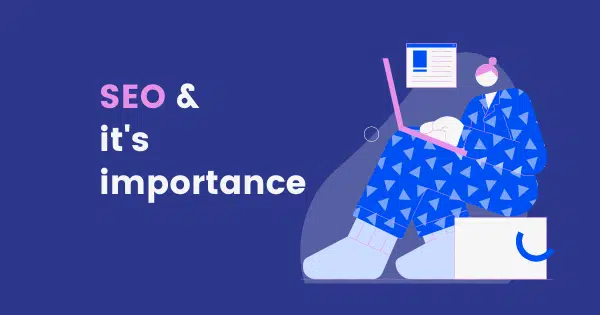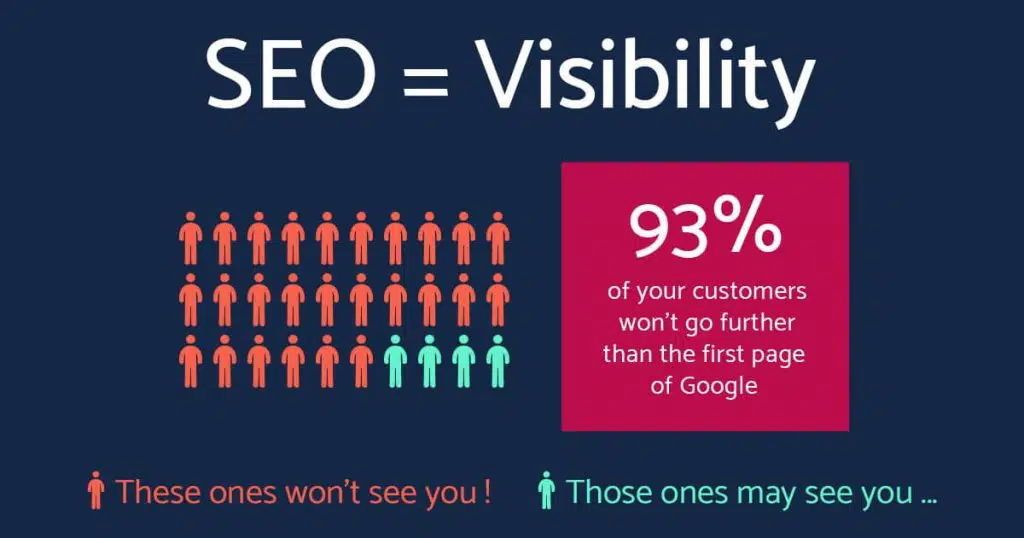Why SEO is so important is simple. It helps your website appear organically in the search engines based on the keywords that potential customers use to find your product. By making your website appear in the search engines, potential leads can find your business and start the engagement process. You will build brand authority, increase your ranking in the SERPs, and lower your cost. To learn why SEO is important for your website, read on. But why is it important for your business?
Search engine optimization
When you are looking to attract customers, search engine optimization (SEO) is an essential component. The purpose of SEO is to improve your website’s ranking in search engine results pages (SERPs). Google is one of the most popular search engines in the US. By optimizing your website for Google, you can generate significant long-term traffic. Organic traffic performs better than other sources, because users are actively searching for the solutions they need.
Most searchers select the first five links on a search result page (SERP). The rest are left with few options. Only about 1% of searchers visit page two. SEO helps ensure that your site is visible for these users, as most of their activity online begins with a search query. With proper SEO techniques, your business will appear at the top of the SERPs and be found by more customers. But why is SEO so important?
Slow loading websites lose rankings, and search engines like fast-loading websites. If your website is slow, users are likely to bounce and won’t stay for the content. Ideally, pages should load in less than 2 seconds. But if you don’t want to rely on the search engines, make sure your website loads fast for all visitors. You’ll increase your conversion rate and get better rankings. But what you don’t know is that search engines don’t understand everything.
Aside from organic traffic, you can also benefit from paid search marketing. Search engine marketers call these ads “PPCs.” These ads show up in search results and are generally more visible than the organic results. This makes it easier for prospects to find you and your business. And this visibility directly correlates with your ranking. A higher ranking means better exposure. So make sure your website is optimized for SEO before you invest in paid advertising. If you are unsure of what you should do to improve your website’s visibility, try a few SEO tips.
Ranking higher on SERPs
Search engine results pages (SERPs) are the webpage listings that appear when people search for a term or keyword. While you can always expect to find a page with the top ranking for a certain keyword, the world of online marketing has gotten more complex in recent years. SERPs now feature Featured Snippets, “People Also Ask”, and paid advertisements. A page that ranks high on SERPs has a strong keyword strategy. Therefore, optimizing your website for those keywords will help you get the highest ranking possible.
There are many aspects of SEO that you need to keep in mind when optimizing your website. Your website’s content should be optimized for both mobile and desktop searches. SEO strategies and SEO tactics should be constantly evolving to stay ahead of the curve. Don’t be satisfied with your results when you hit a plateau. Continue to look for new keyword opportunities and optimize your website for the highest rankings possible. This will help you achieve higher rankings faster and get the best results.
Besides keywords and content, your website’s E-A-T (Evaluating Authority) and page authority play an important role in ranking on SERPs. In other words, the more authoritative a website is, the higher its ranking will be. Knowing which of these factors will impact your website’s rank and improve your site’s content will help you develop a better strategy. And if you’re wondering which factors affect your ranking, check out the Website Authority Checker to find which sites are valuable.
Although getting to page one of a SERP is an achievement, it’s only the beginning of the journey. You can’t be certain of what users are looking for, but the best way to get there is to optimize for specific keywords that people are likely to be searching for. And remember, 75% of web users don’t look past the first SERP, so if you’re not on the first page, your chances of earning high organic traffic are much lower.
Building authority
Creating relevant content is one of the most important factors in search engine optimization. Relevant content shows search engines that you are a professional in your field and are knowledgeable about your niche. Creating content takes time, so stick to a 350-400-word-per-page ratio. Submission to directories is another way to get links to your site. This tactic can help you build authority quickly. However, it is important to follow the rules of Google’s algorithm.
Cost-effectiveness
Using search engine optimization to promote your products and services will bring you qualified traffic and leads. In addition, it can help you rank well in Google for relevant keywords. While SEO is important for cost-effectiveness, it requires consistent effort from the business owner. It can take months or even years to improve search rankings. However, the benefits of SEO are long-term and sustainable. Using this strategy will ensure that your content continues to receive traffic even after it is published, requiring less ongoing maintenance and marketing expenses. Furthermore, SEO will help you build a strong brand image for your brand.
While the costs of digital marketing are increasing, the ROI is comparatively low. SEO can help boost your online presence, and it costs less than PPC advertising. Moreover, SEO can deliver more results for a business’s marketing efforts than a boring ad. Unlike PPC and other traditional marketing efforts, SEO can bring significant returns for a small investment. With a high return on investment, SEO can help you boost your sales and improve your brand’s visibility online.
SEO can help your business achieve its goals beyond organic traffic and brand awareness. Cost-effective SEO services enable businesses to connect with their prospects at every step of the purchasing process. By delivering targeted and engaging content, you can move your prospects from awareness to conversion. You can then gauge the ROI and adjust your SEO budget accordingly. Your ROI will determine if SEO is an effective and efficient option for your business. It also helps you decide how much you should invest in the future of your business.
The cost of SEO services varies greatly depending on your industry and the amount of traffic in your niche. For example, a website tune-up for a law firm in the suburbs may cost less than the same optimization process if it is built within a city. Also, a newly-built website may require intensive optimization efforts. So, it is critical to analyze your current situation to determine whether you should hire an agency or not.
User experience
Google has recently updated its algorithms to place an increasing emphasis on user experience, and UX is becoming an increasingly important ranking factor for web properties. However, many SEO experts mistakenly assume that they are already delivering a good user experience when they focus on page speed optimization, publishing unique, high-quality content, and other SEO tactics. Instead, these professionals should be applying the principles of UX, which can give them an inside view of their audience and win their loyalty.
In the past, optimizing for search engines meant targeting exact-match keywords. That was the easiest way to get high rankings. Now, however, it takes an effort to put yourself in the shoes of your users and analyze their search queries. Google is making this a priority by introducing RankBrain, an algorithm that takes into account factors like page load time, stability, and interactivity. If your pages have a high bounce rate, it’s time to change your content strategy.
When it comes to user experience, you should focus on the things that make it easy for people to browse your website and find what they’re looking for. If the process is easy, the user will be likely to stick around and make more purchases. Creating a good user experience will also boost your search engine ranking. And if you’re an e-commerce site, the user experience is vital for the customer experience. Good UX can dramatically improve conversion rates, which is critical for a website.
The main goal of UX and SEO is to improve compatibility with both the user and search engine. Google wants to direct searchers to websites that meet the needs of the user. A good user experience reduces page load time, mitigates bounce rate, and improves customer satisfaction. Improved network performance can be achieved through software-defined networking (SDN) technology. By centralizing network data, SDN technology improves performance.



Recent Comments